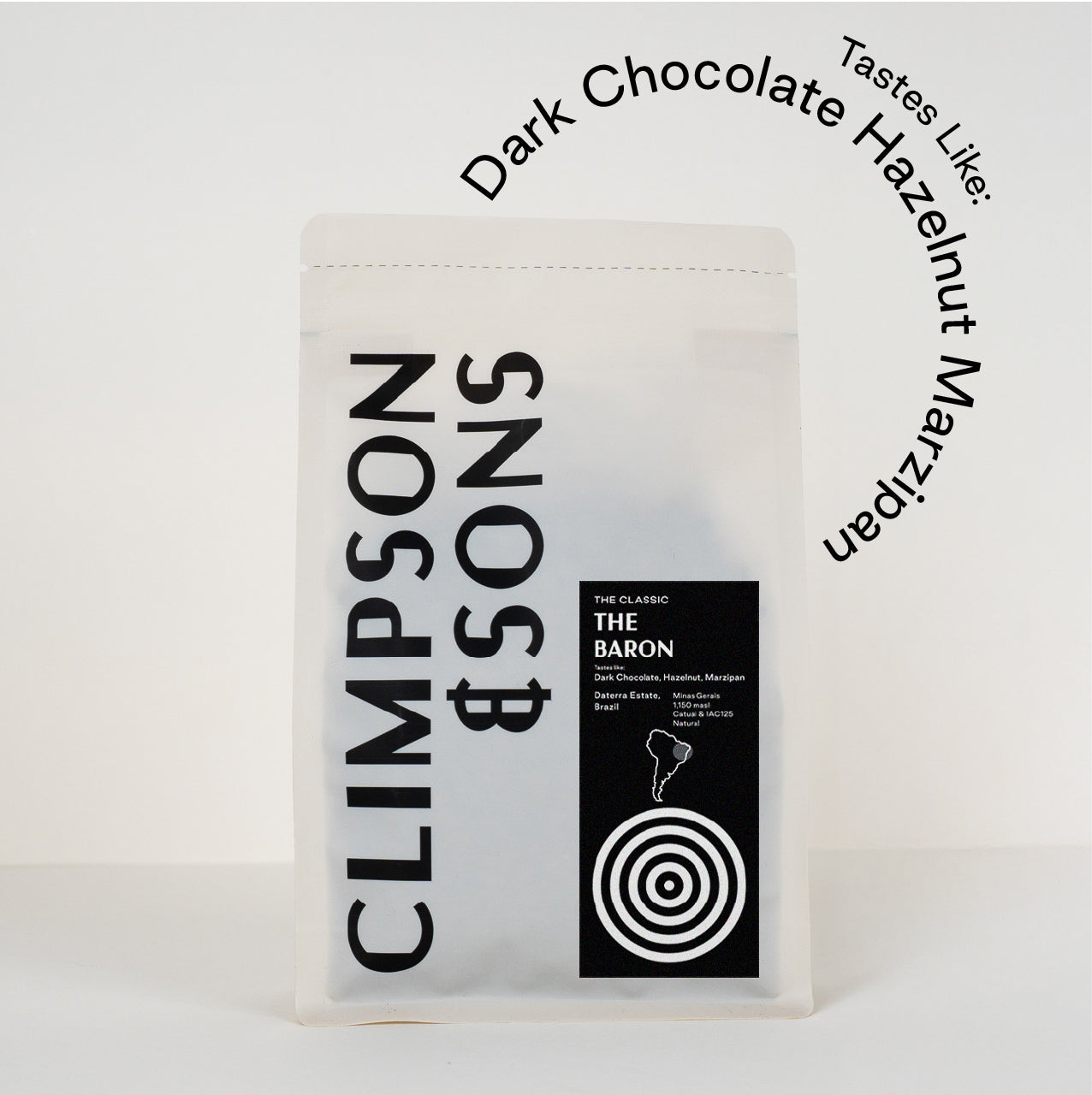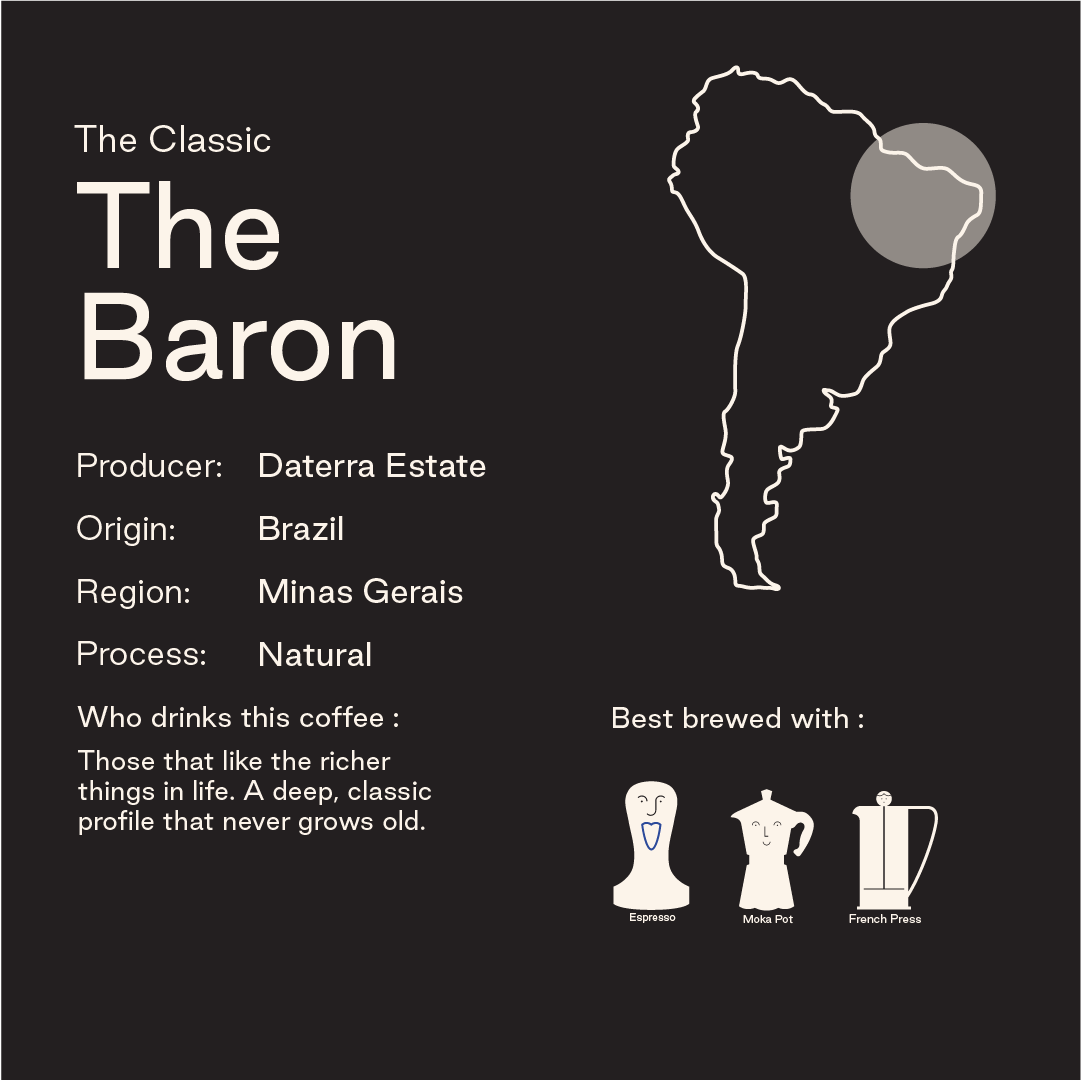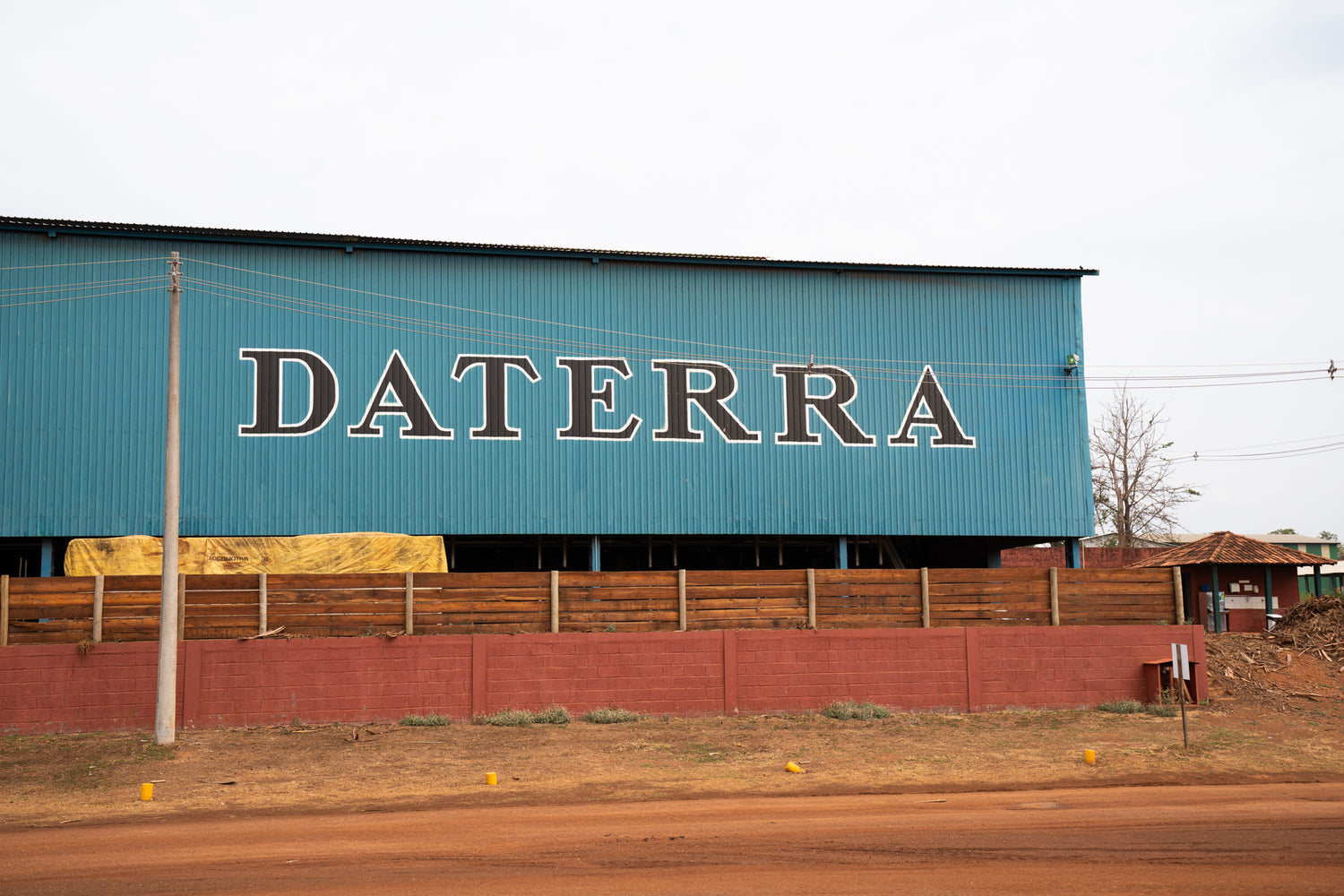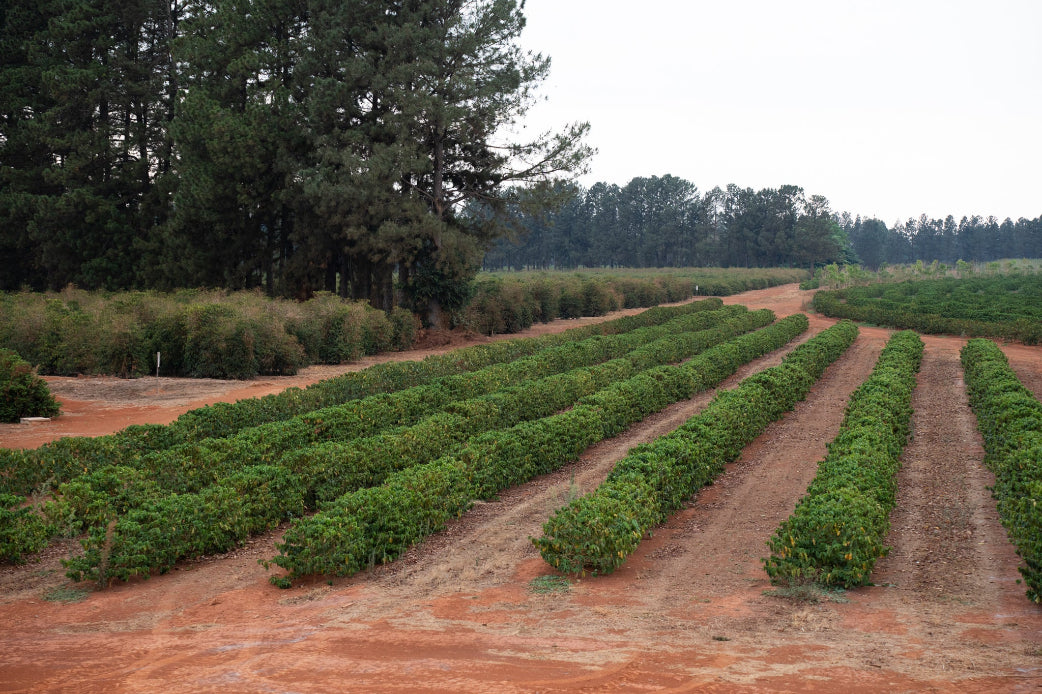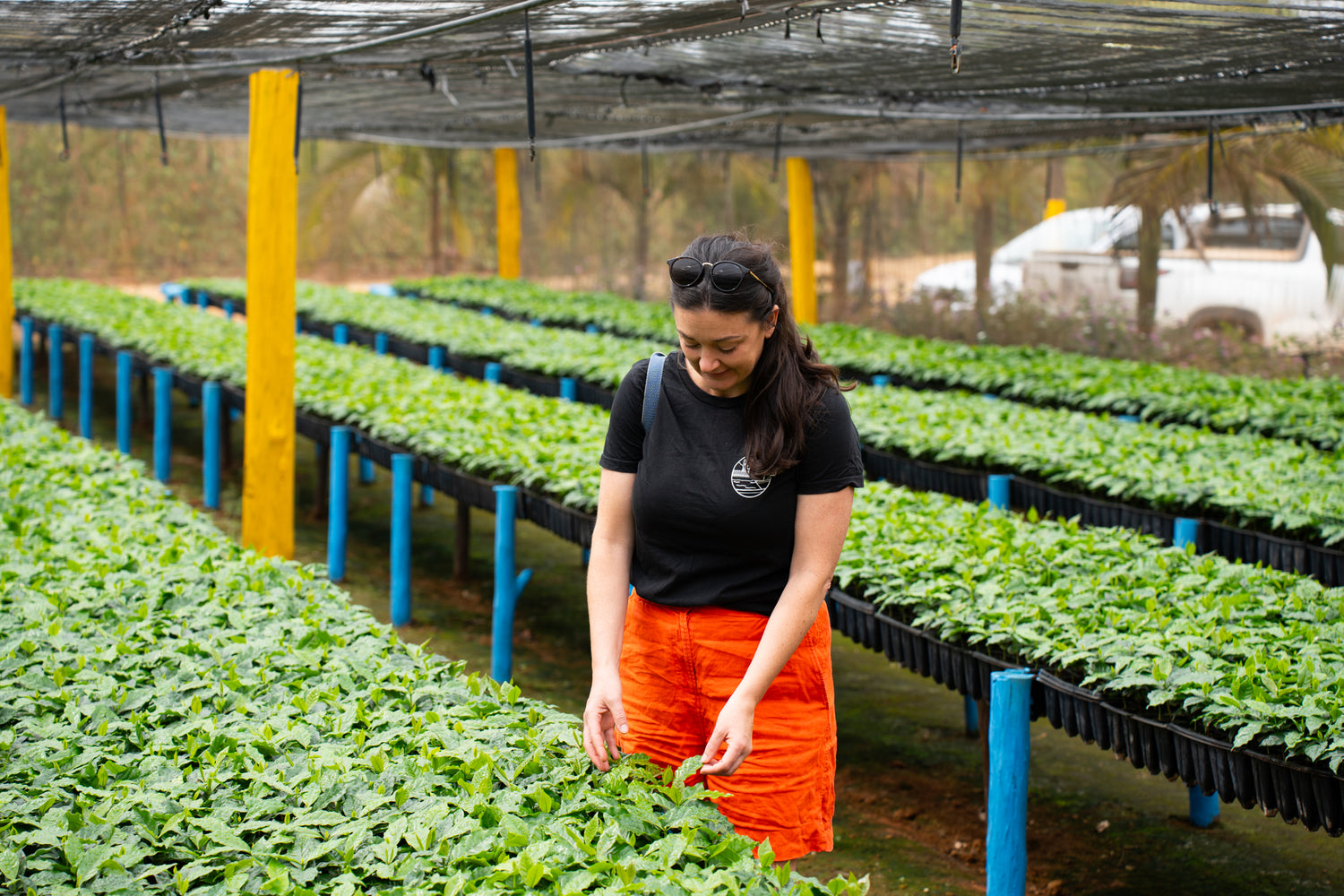DATERRA, BRAZIL
£12.00
People. Planet. Processing.
The production of specialty coffee is grounded on environmental preservation and social development. Daterra means “from the earth” and was conceived in the 80s after previously starting as a cattle and avocado venture. Repairing the ecosystem was a priority in this move to coffee production and it took 10 years to restore the flora, fauna, soil and water springs needed to support the sustainable coffee growing we now see. With the specialty coffee industry often looking to adopt new sustainable initiatives, Daterra has consistently pushed these ideas further with a unique ability to invest in their own bespoke solutions. Partnering with leading universities, Daterra is on a mission to naturally re-purpose all water used in production whilst discarded coffee fruit becomes the basis of their organic compost. Of their 6,500 ha, more than 3,000 ha is now considered conservation land to protect the native trees, animals and delicate ecological balance that makes coffee possible. Daterra’s belief that a sustainable supply chain will reflect in quality coffee has now proven true for decades and is considered a model of excellence. Daterra became the world’s first B Corp coffee farm in 2016 and continues to review and improve their practices. This has led to widespread recognition with the notable achievement as the first farm in the world to receive the Level A certification from the Rainforest Alliance.
The Baron is comprised of Catuai and IAC125 varieties from the Boa Vista side of the farm. Even at 1,150 masl the landscape here is generally flat allowing for the mechanical harvesting of cherries. Whilst this speeds up the picking process it does mean there are varying degrees of ripeness from each plot when delivered to the wet mill for processing.
Daterra have developed their own Smart Wet Mill where all incoming cherries are sorted into 7 degrees of ripeness which will then determine their processing method. With a full-bodied espresso in mind, we gravitated to the natural process implemented using the almost dried raisin stages of ripeness. Allowing some natural drying on the tree is a technique unique to the Cerrado region and its consistently hot and dry microclimate. The resulting coffee is the ultimate crowd-pleasing espresso and a testament to continued investment in sustainable practice and innovative methods.
MORE INFORMATION
-
Brew Guides & Tips
Check out our brew guides – a curated selection of recipes and tips from the Climpsons team to help you get the most out of your coffee, whatever your setup.
-
Choosing the Right Grind for Your Brew Method
We offer multiple grind options from Cafetiere to Espresso and everything between. Our domestic espresso grind is slightly coarser and is perfect for home espresso machines, such as DeLonghi or Sage whereas the commercial espresso grind is better suited to commercial machines like La Marzocco or Sanremo. If you’re not sure what grind to choose please get in touch with our team at admin@climpsonandsons to see how they can help. Remember, pre-ground coffee is not an exact science and is only one of many brewing variables. For better brewing, why not take a look at one of our brew guides here https://climpsonandsons.com/blogs/brew-guides.
-
Shipping Info
Typically, orders placed before midday (12pm GMT) will be shipped the same day. If your order is placed after midday, it’ll likely be dispatched the next available working day (Monday-Friday). We aim to process orders within 1 business day of confirming payment.
Expect delivery of your order within 28 days although most items will be received within 3 working days. Delivery to Northern Island, the Highlands, the Channel Islands, Jersey, or Guernsey may take up to 5 working days. If we cannot ship the goods within this time, the consumer will immediately be notified to agree on another time for shipment. If we cannot agree on another time, the consumer will be offered a refund.
Our postage & packaging system is easy to understand. Postage & packaging is added at the checkout stage depending on how heavy (in weight) your order is.
